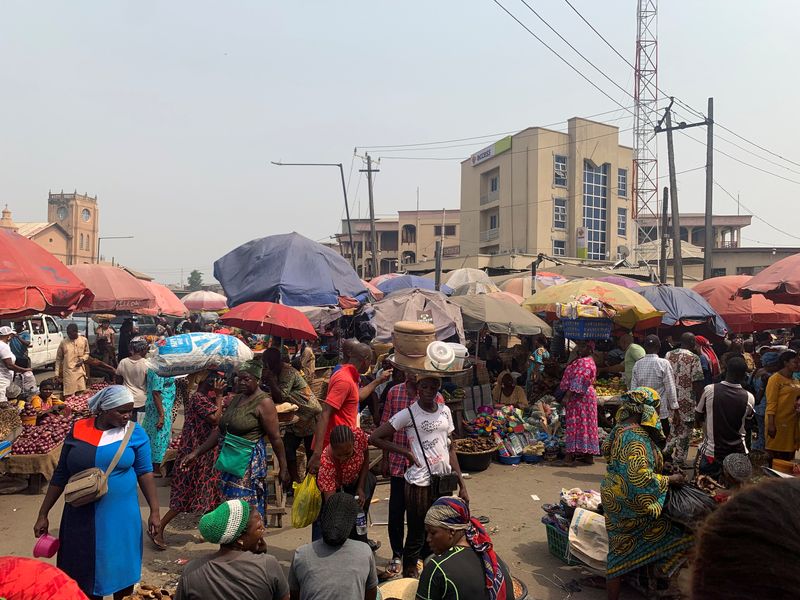ABUJA (Reuters) - Nigeria is beginning to reap the benefits of significant policy reforms following a near fiscal crisis in 2020, but must stay the course, the World Bank said on Thursday.
President Bola Tinubu has instituted reforms including ending a decades-old petrol subsidy and devaluing the currency to try to boost output, which has been sluggish for about a decade.
World Bank lead economist for Nigeria Alex Sienaert said that Nigeria's fiscal deficit has reduced from 6.2% of Gross Domestic Product (GDP) in the first half of last year to 4.4% in the first half of this year, with the reforms leading to robust growth in service sectors, stability in the oil sector, and improvements in the foreign exchange market.
"We are seeing a fiscal consolidation underway with the fiscal deficit shrinking and that's driven by a combination of expenditure being roughly constant in real terms, and revenues which are surging," Sienaert said during a presentation in the capital Abuja.
"This surge in revenues is largely due to the removal of the implicit forex subsidy that was happening before, which was even larger than the petrol subsidy, which we talk a lot about," he said.
The World Bank expects Nigeria's economy to grow at 3.3% this year, rising to 3.6% in 2025.
Nigeria's fiscal crisis had been mounting following two economic recessions in the last eight years due to a combination of economic mismanagement and policy challenges.

The recent reforms, including a focus on price stability and a unified market-reflective exchange rate by the central bank, have proven critical in stemming an economic downturn, but they have stoked inflation.
"The ultimate purpose here, of course, is jobs and opportunities," Sienaert said.